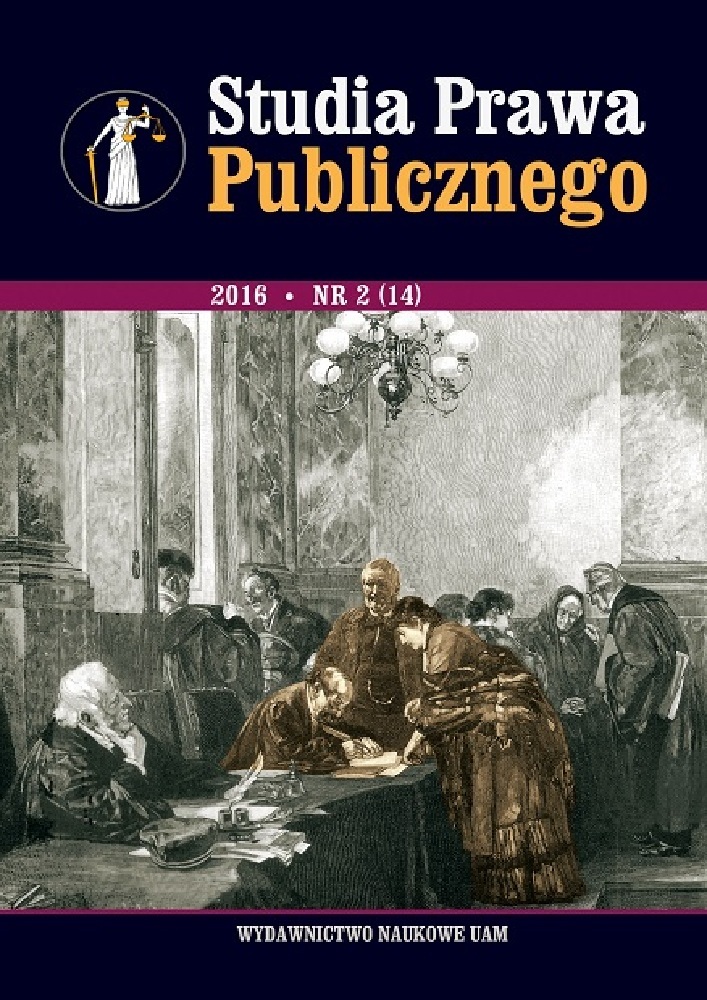Abstract
The Act on Administrative Enforcement Proceedings was adopted on 17 June 1966. The Act constitutes the basis of enforcement proceedings in administration and has been in force for the last fifty years. Despite many political and socio-economic changes during that period, the national legislature decided not to introduce any new legislation but simply modify the existing regulations. This study aims to describe and explain the amendments to the law on administrative proceedings which came into force on 1 January 2016. These amendments are connected with the solutions worked out in the model structures of tax administration organisations resulting from the enactment of the Act on Tax Administration of 10 July 2015 and require extensive discussion as they change the essential components of the procedure i.e. initiation of enforcement proceedings by creditors, exclusion of the Minister of Finance from the jurisdiction in the second instance in individual cases of enforcement procedure, the possibility of authorising local governments own organisational units to exercise the rights and obligations of the creditor and the enforcement authority, postponement of enforcement proceedings or enforcement actions, mandatory elements of an administrative enforcement title, the procedure adopted by an enforcement authority at the stage of examining the admissibility of an enforcement order, information rights of the enforcement authority, recognition of complaints regarding enforcement actions (general and connected with applying a specific enforcement measure) as well as the excessive length of proceedings and elimination of enforcement costs if creditors are tax offices or customs chambers.
License
Copyright (c) 2019 Piotr Kożuch

This work is licensed under a Creative Commons Attribution-NonCommercial-NoDerivatives 4.0 International License.
